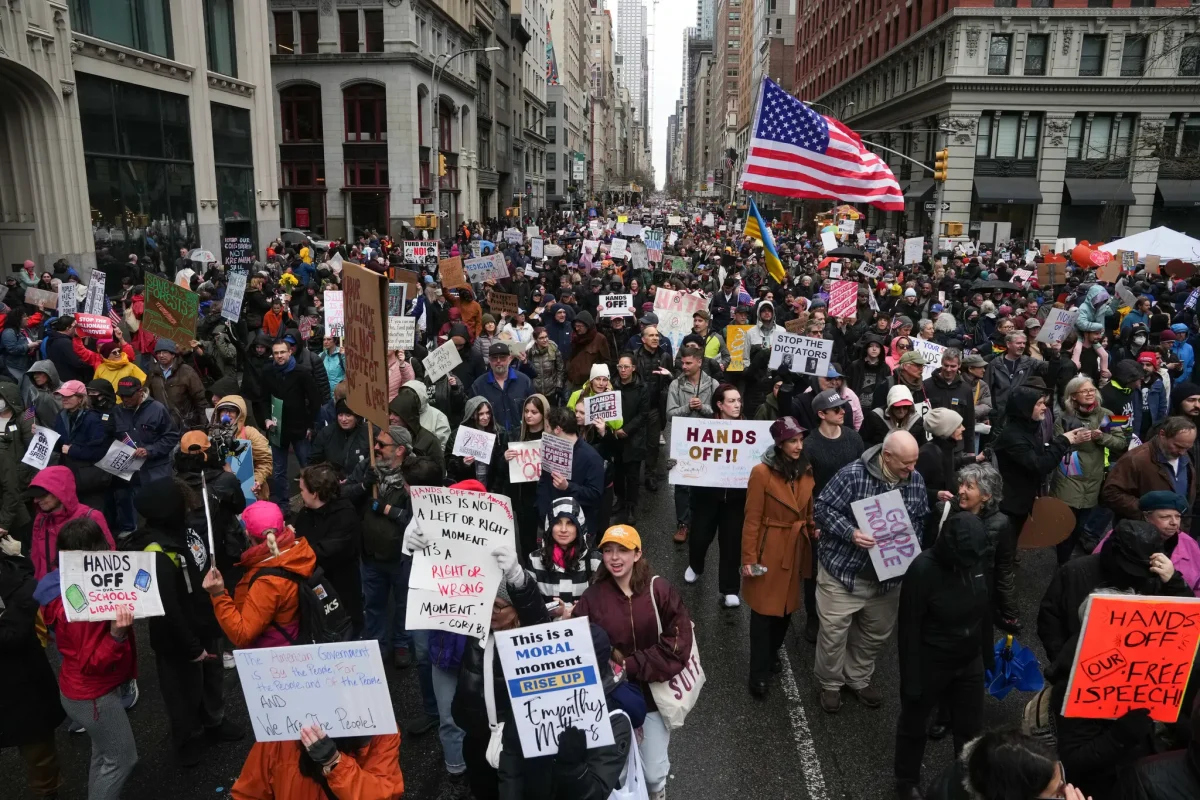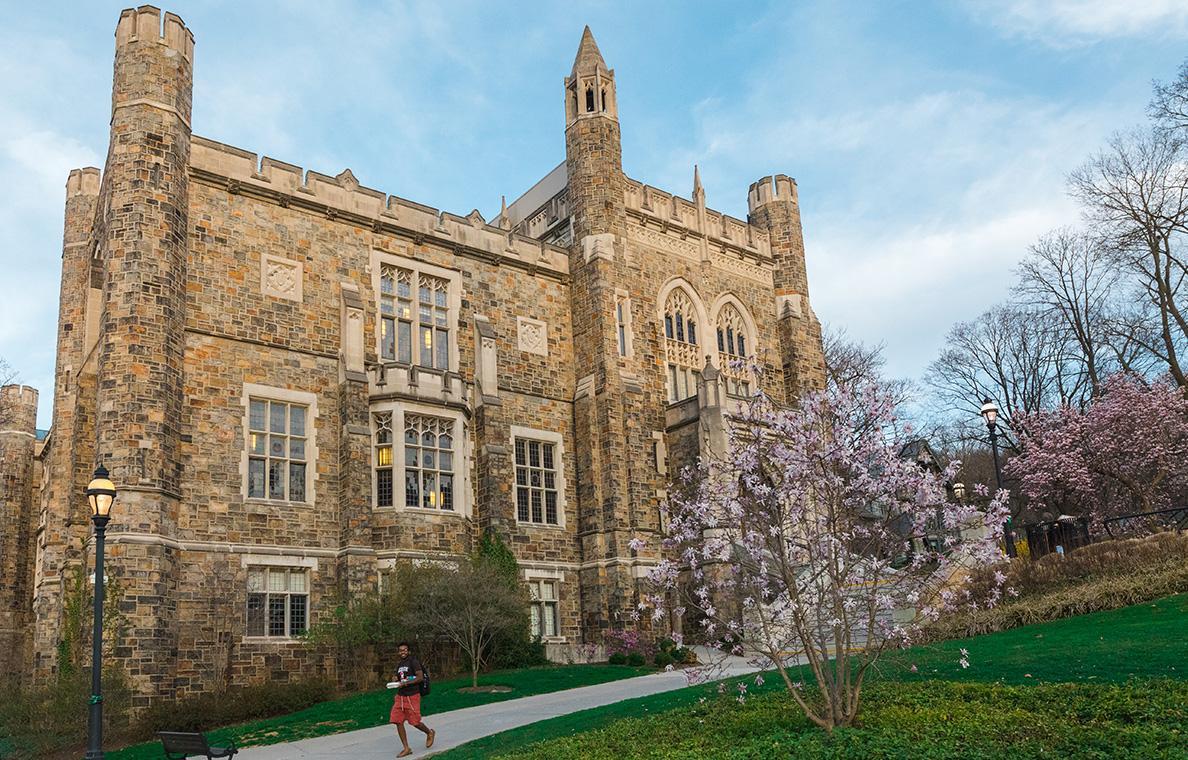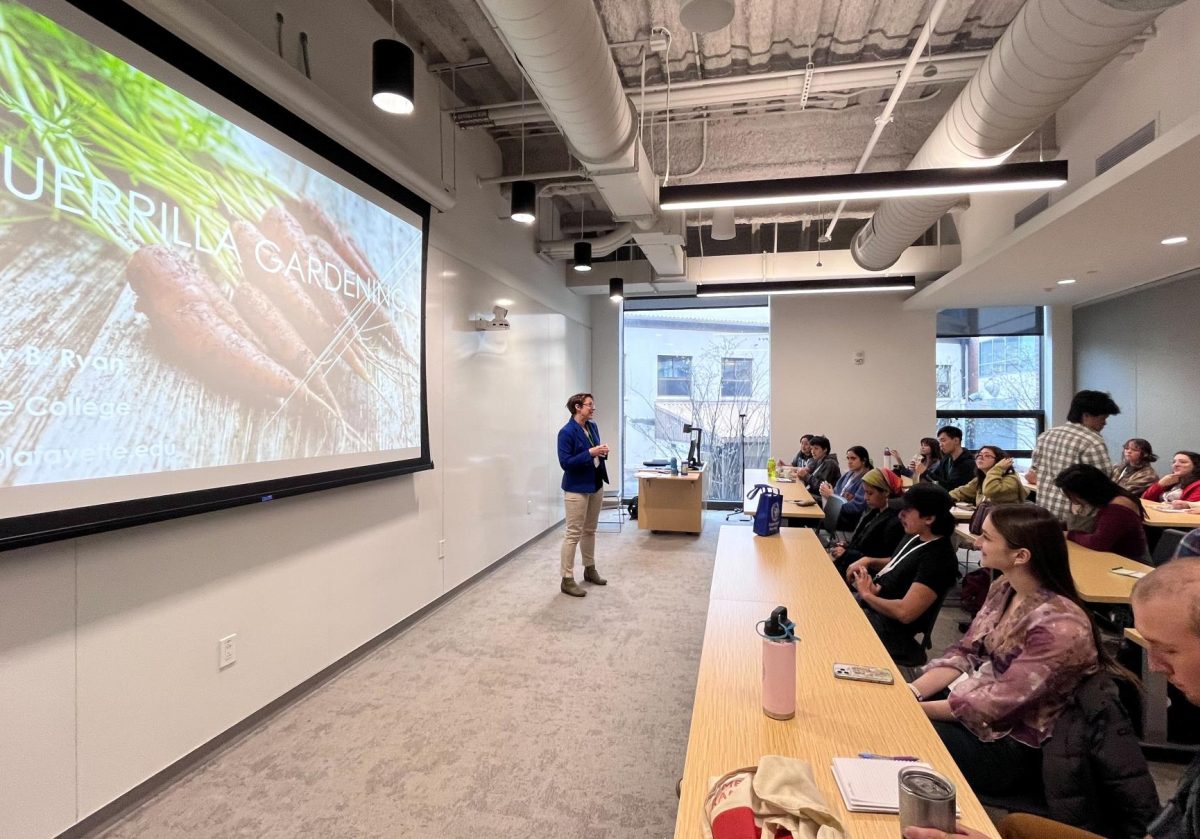President Donald Trump signed an executive order on April 2 announcing 10% import tariffs on all foreign countries — and sent the stock market into a downturn — before pausing the tariffs for 90 days in most countries on April 10. Despite the pause, some Easton city officials and business employees expressed concerns and uncertainty over what the tariffs might mean moving forward.
Trump paused his new tariff plan — which went into effect on Saturday — on Thursday, writing in a post on Truth Social that 75 countries had called for tariff negotiations. The S&P 500’s value, which dropped to its lowest rate in a year on Tuesday, jumped by 9.5% on Wednesday after the announcement that the tariffs would be paused, among other well-known stocks.
“More people have needs, and we don’t have any mechanism to support them,” said Easton Mayor Sal Panto Jr. on the possible consequences of tariffs in a city in which 58% of residents face financial hardship, according to a 2024 United Way Greater Lehigh Valley study.
Panto also said the 25% tariff on all imported vehicles and parts — plus a 25% tariff on steel and aluminum — could impact the city’s maintenance of its vehicle fleet, which costs roughly $350,000 a year.
The steel tariff could also impact the city’s construction sector, which is booming as it undergoes major construction projects with the soon-to-be-opened The Marquis, The Confluence, Dutchtown Pointe and a new Easton hotel.
Pennsylvania is the 10th largest importer of goods in the United States, importing over $183 billion of goods in 2021, according to the GlobalEdge database from the International Business Center. The largest source of these imports is China, which was hit with a 125% tariff rate.
Pennsylvania’s top imports are pharmaceuticals, electrical machinery, industrial machinery and motor vehicles and parts. The over $13 billion of motor vehicle parts would be included in the 25% imported vehicle tariff.
Other major imports include consumer goods like furniture, knit apparel, footwear and cosmetics.
“It’s such a disaster right now, at least from a supply standpoint,” said Ian Walker, an associate of Easton Outdoor Company, who added that outdoor equipment is already “expensive as it is.”
“We have to wait and see,” he said of Easton businesses. “And I think that’s kind of where everybody is.”
“I’m small enough where I source all through PA only,” Alyssa Higgins, owner of Houseplanted in the Easton Public Market, said of the plants she had in inventory. “But I know that a lot of other local business owners of plant shops struggle a lot because they get imports from out of the country.”
But for other products, including pottery, Higgins said her suppliers were facing limitations as a result of the tariffs. One of the shop’s suppliers had released an email announcing that it was pulling 1,400 items from the United States catalog as a result of the tariffs.
“It doesn’t necessarily affect me with the plants, but it affects the community and it affects my inventory for sure,” she said.
Panto said that the costs saved federally by the cuts will be passed onto Easton residents through taxes.
“The cuts that are being made are going to hurt the less fortunate,” Panto said. “Local government will have to spend more money than the federal government.”
Panto, a Democrat, added that he has met with Republican Rep. Ryan Mackenzie to discuss the possible impacts of the tariffs.
“Ryan is there to push the president’s program, and I don’t think we’re gonna get a lot of help, but I think he means well,” Panto said. “We’ll have to see.”
Mackenzie’s spokesperson declined to comment on behalf of Mackenzie, deferring to recent interviews on news networks in which Mackenzie told Bloomberg that the country should “show some caution and restraint when we’re making these wild moves.”

























































































































